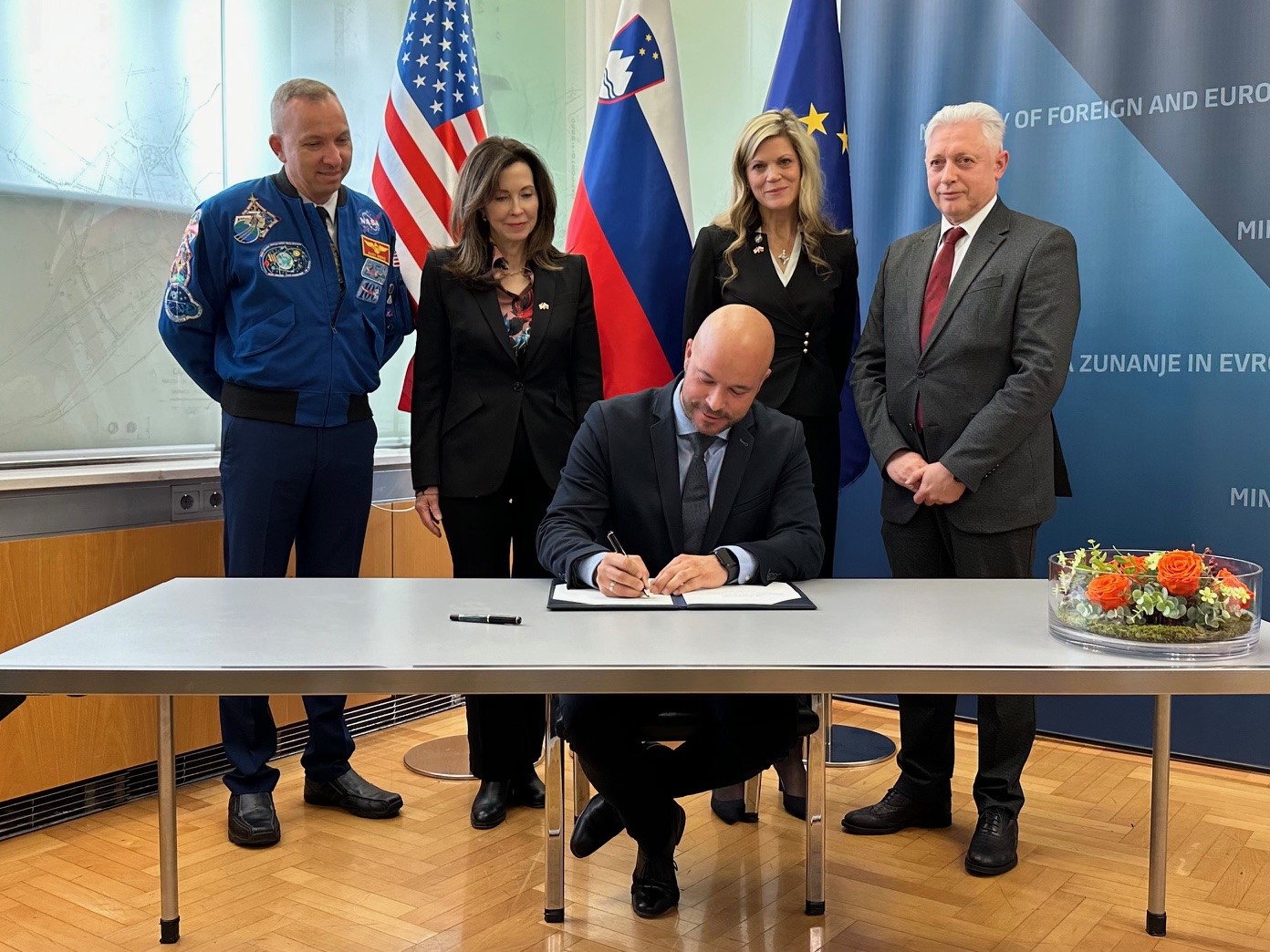
NASA and Slovenia affirmed their cooperation in future space endeavors on Friday as Slovenia became the 39th country to sign the Artemis Accords. The signing certified Slovenia's commitment to pursue safe and sustainable exploration of space for the benefit of humanity and took place during a U.S.-Slovenia strategic dialogue in Ljubljana, Slovenia, at the Ministry of Foreign Affairs Offices.
"NASA welcomes Slovenia to the Artemis Accords," said NASA Administrator Bill Nelson. "Today, the partnership between the United States and Slovenia crosses a new frontier. We live in a golden era of exploring the stars. That era will be written by nations that explore the cosmos openly, responsibly, and in peace."
State Secretary Matevž Frangež of the Ministry of the Economy, Tourism, and Sport signed the Accords on behalf of Slovenia, with James O'Brien, Assistant Secretary of State for European and Eurasian Affairs, participating in the signing event.
"Slovenia joins the principles, values, and rules on the peaceful use of space as a common good of humanity," Frangež said.
Rebecca Bresnik, Associate General Counsel for International and Space Law, served as the senior NASA official at the ceremony, along with her husband, Randy Bresnik, who is a NASA astronaut of Slovenian descent.
"We are delighted to welcome Slovenia to the Artemis Accords family," said Ambassador Jamie Harpootlian, the U.S. ambassador to Slovenia "We recognize Slovenia as a rising leader in space. We look forward to taking our collaborations with Slovenia on science, technology, and innovation to new frontiers."
In 2020, the United States and seven other countries established the Artemis Accords to establish guidelines for the peaceful exploration and use of outer space. The Accords reinforce and implement key obligations in the 1967 Outer Space Treaty. They also strengthen the commitment by the United States and signatory nations to the Registration Convention, the Rescue and Return Agreement, as well as best practices NASA and its partners support, including the public release of scientific data.






